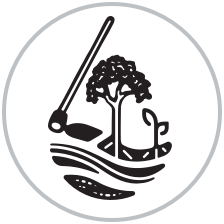World Vision Zambia is on an intentional journey to cascade Resilience Design (RD) principles across our programming and align them with our core project model: Regreening Communities.
The journey began in March 2025, when two World Vision Zambia staff attended the two-week Resilience Design 'T3' Training of Trainers at Lok Neno, the RD demonstration, research and training center run by African Women Rising in Northern Uganda.
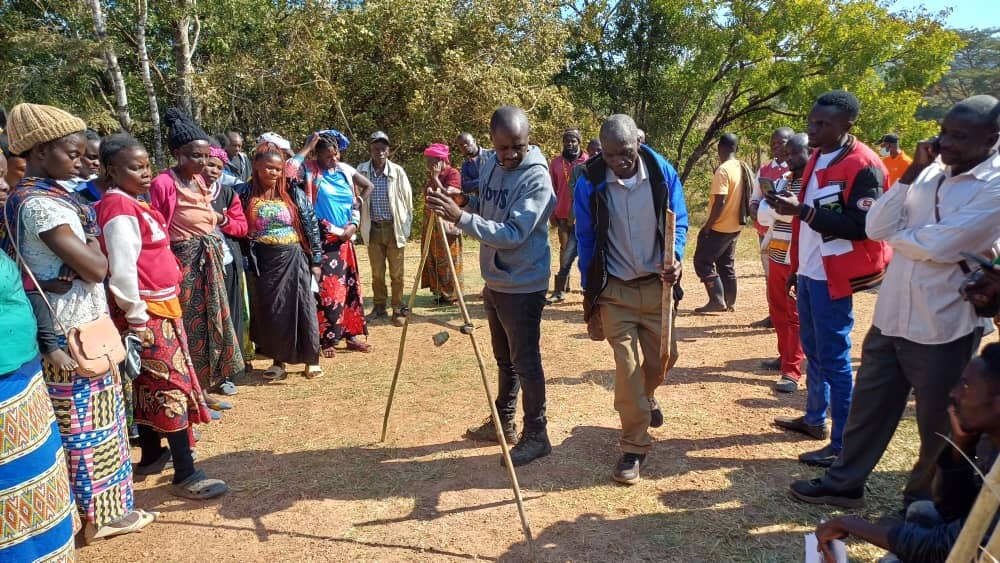
Following the training, in June 2025, we facilitated a Soil and Water Conservation training in Lunga-Mudanyama Area Programme in Mwinilunga District (Agroecological Region III). The training incorporated RD principles and introduced practical approaches for restoring degraded soils, capturing water, and integrating trees and crops for long-term resilience.
Competing at the Zambia Agricultural and Commercial Show
We took RD to the national stage at the 97th Agricultural and Commercial Show in August 2025. The theme was “Adapting to Climate Change” and we demonstrated RD at the garden level—using the Permagarden Approach—within a Farmer Field School simulation.
The interactive design captured wide attention, leading to World Vision Zambia winning 1st Place in the Best NGO Category—affirming the relevance and visibility of RD as an approach to climate resilience.
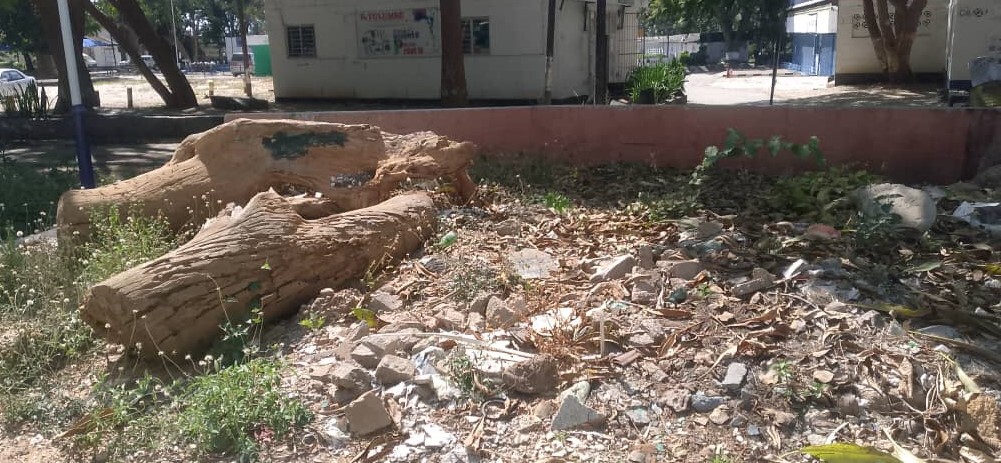
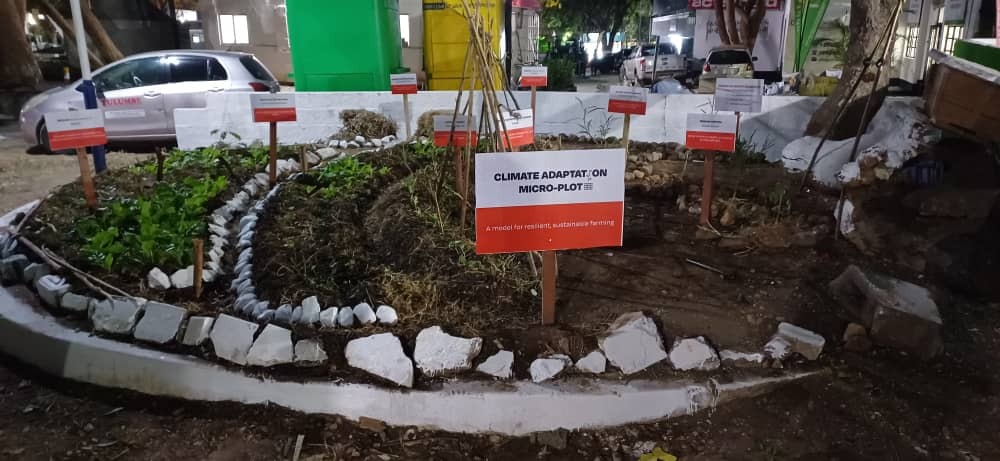
Cascading RD within World Vision Zambia
Building on this momentum, from 10th –16th August 2025, we conducted our first T2 Resilience Design training for staff, led by the two newly T3 trained staff. This training strengthened internal capacity and prepared staff to implement and scale RD across Area Programmes.
-
 World Vision Zambia staff learn to build and calibrate A-frame levels at their RD training. Credit: Kelvin Chishimba
World Vision Zambia staff learn to build and calibrate A-frame levels at their RD training. Credit: Kelvin Chishimba -
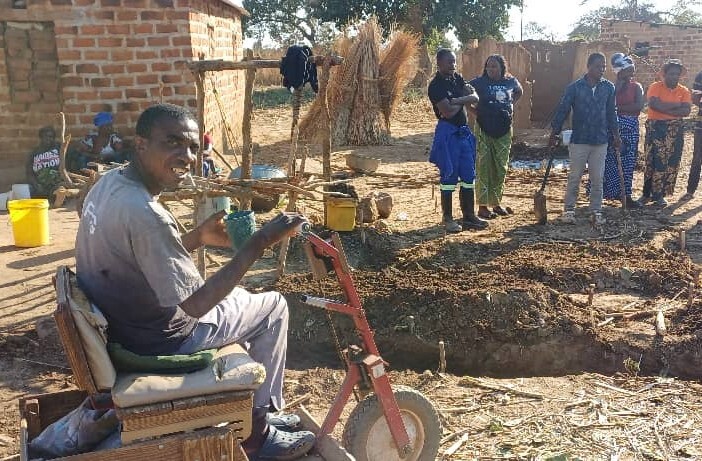 World Vision Zambia prioritizes equity and inclusion in the selection of its RD demonstration sites. Credit: Kelvin Chishimba
World Vision Zambia prioritizes equity and inclusion in the selection of its RD demonstration sites. Credit: Kelvin Chishimba -
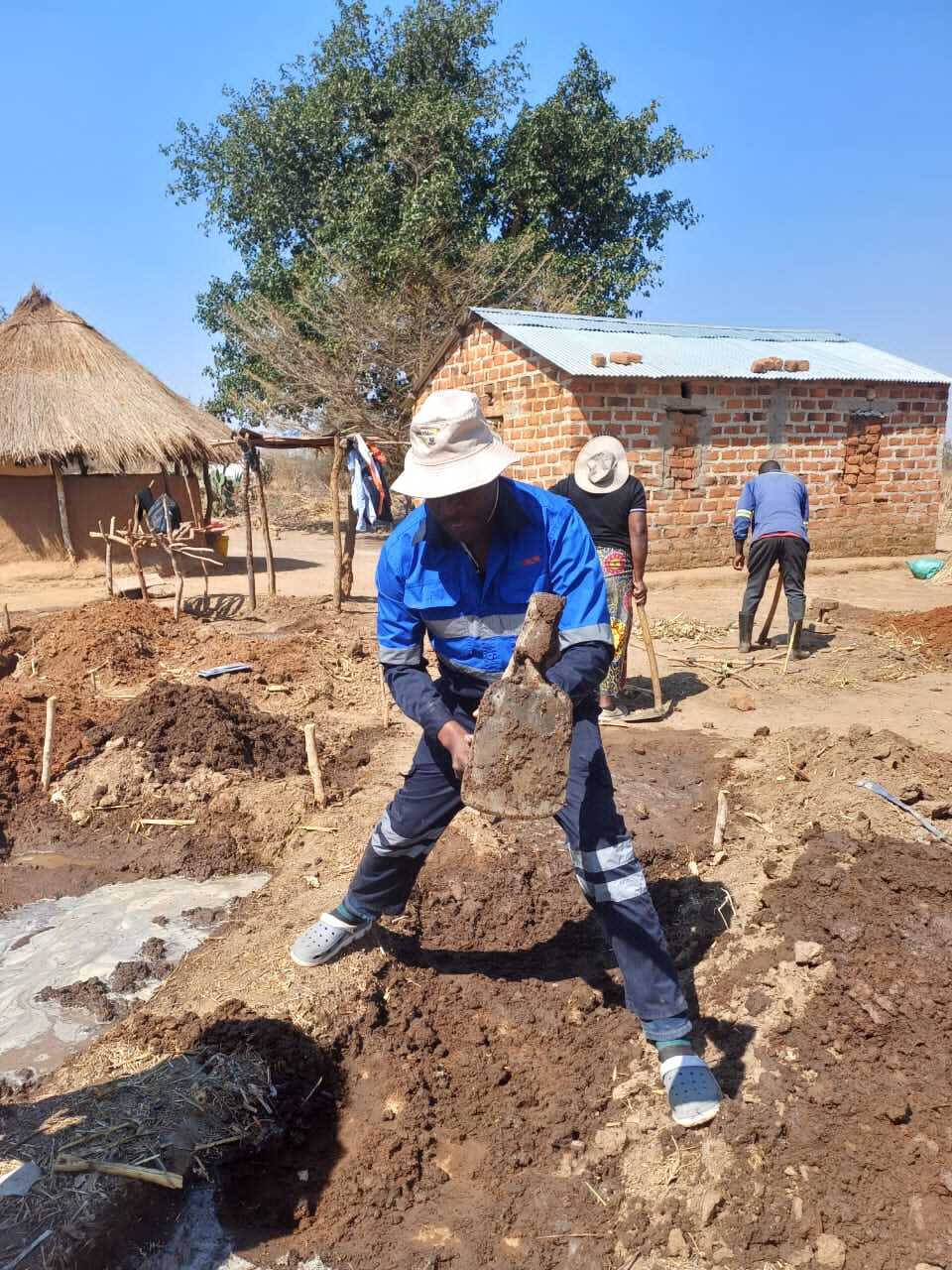 Digging water harvesting and planting structures. Credit: Kelvin Chishimba
Digging water harvesting and planting structures. Credit: Kelvin Chishimba
As part of the RD rollout, we have already established two demonstration sites showcasing permagardens and food forests at inclusive households: one managed by a female lead farmer and another by a farmer living with disability. These sites are not only practical learning sites but also symbols of equity, ensuring that no one is left behind in the resilience journey.
From training in the field, to national recognition, to inclusive community demonstrations, RD is steadily taking root in World Vision Zambia.
As we continue cascading the knowledge, one thing is clear: designing with nature is not just transforming landscapes—it is regreening communities, restoring dignity, and building resilience for generations to come.
Looking ahead, our next step is to establish a Resilience Design demonstration site at the World Vision Zambia National Office. This site will serve as a living classroom for staff, partners, and visitors, ensuring that RD is not only practiced in communities but also embedded in our organizational culture.
We look forward to sharing more about our RD journey as it continues!
